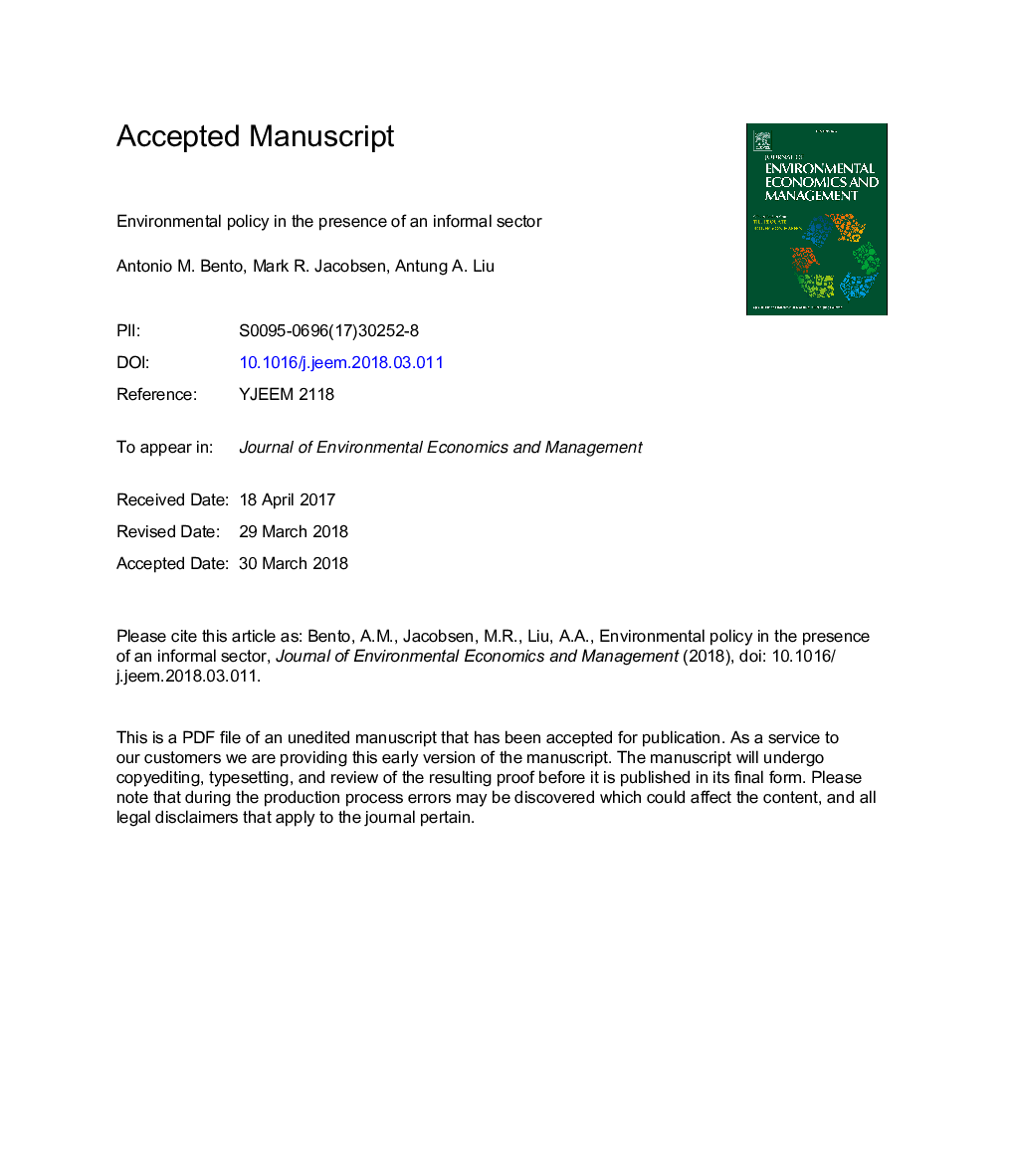| Article ID | Journal | Published Year | Pages | File Type |
|---|---|---|---|---|
| 7361211 | Journal of Environmental Economics and Management | 2018 | 31 Pages |
Abstract
We demonstrate how the presence of an informal sector can sharply lower the cost of environmental and energy tax policy through two mechanisms. First, energy taxes indirectly tax the informal sector because even informal firms must buy formal sector sources of energy such as electricity. Second, a revenue-neutral shift in the tax base toward energy can decrease the tax burden on goods which are substituted for by the informal sector. These mechanisms can lead to welfare-enhancing substitution from informal labor into the formal sector. We consider the magnitude of these effects in a stylized model of the U.S. tax system. Even though the U.S. informal sector is relatively small, we find that distortionary costs of energy taxes are reduced by more than half. In developing countries, where the informal sector is typically much larger, the effect we identify here become even more relevant: we find negative gross costs in many cases. Finally, we address two potentially important countervailing effects: the use of informal fuels in developing countries and the potential for informal production to substitute for energy-intensive goods. We show how these different types of informality compete, and find that welfare enhancing effects typically dominate.
Related Topics
Social Sciences and Humanities
Economics, Econometrics and Finance
Economics and Econometrics
Authors
Antonio M. Bento, Mark R. Jacobsen, Antung A. Liu,
